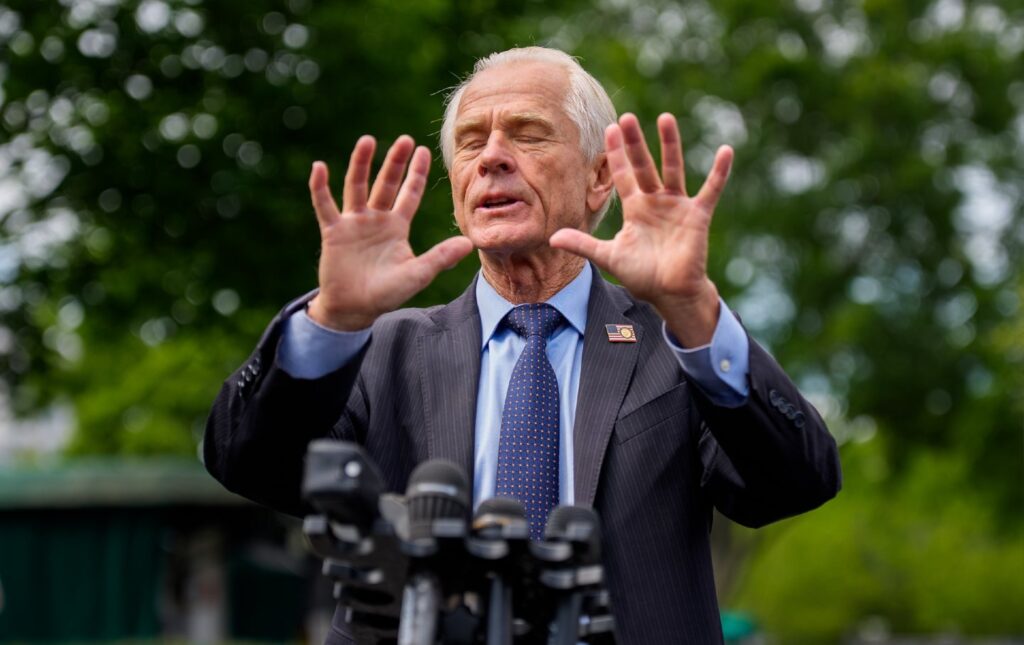Judicial Rulings Confirm the Unconstitutionality of Trump’s Tariffs Amid Ongoing Legal Battles
Legal experts and courts reaffirm that presidential tariffs overstep constitutional boundaries, despite ongoing debates.
Introduction: The Court’s Clear Stance on Tariffs
Recently, a federal appellate court decisively declared that former President Donald Trump’s broad-based tariffs violate constitutional limits. This ruling underscores a fundamental principle: the authority to impose tariffs resides with Congress, not the President. Despite the legal affirmation, the battle over these tariffs continues in higher courts, leaving the final verdict pending.
The Court’s Unanimous Decision: A Landmark Rejection
In a significant development, the US Court of International Trade, a federal appeals court, unanimously concluded that Trump’s tariffs exceeded the powers granted under the 1977 International Emergency Economic Powers Act (IEEPA). These tariffs, which were introduced as retaliatory measures, were deemed unlawful because they usurped legislative authority. The court’s decision invalidated the so-called “Liberty Day” tariffs, which Trump had implemented and later partially rescinded.
However, this victory was short-lived. The Federal Circuit Court of Appeals, which has jurisdiction over such cases, issued a stay on the initial ruling, effectively pausing its enforcement and scheduling further proceedings for June 9. This procedural move means the legal process remains ongoing, with the potential for the case to return to the Supreme Court.
Why Trump’s Tariffs Are Likely to Fail in Higher Courts
Despite procedural delays, legal analysts widely agree that Trump’s tariffs are destined to be overturned. The core issue is straightforward: the U.S. Constitution grants Congress the exclusive right to regulate tariffs and trade policies. The president’s attempt to unilaterally impose such measures through executive action is fundamentally unconstitutional.
Historically, courts have consistently upheld the principle that executive powers are limited, especially concerning trade and economic policy. Trump’s repeated efforts to bypass Congress-whether through executive orders or emergency powers-have repeatedly faced judicial pushback. Legal scholars argue that courts will uphold this precedent, affirming that the president cannot unilaterally set tariffs without legislative approval.
The Political Context: Congressional and Judicial Dynamics
While Trump’s actions have faced legal obstacles, the political landscape offers some nuance. Members of his own party, particularly those concerned about economic stability, have expressed relief when courts intervene to block policies deemed harmful. For instance, conservative law professor Ilya Somin noted that the courts’ rejection of Trump’s tariffs aligns with longstanding constitutional principles about the separation of powers.
This legal pushback highlights a broader issue: the danger of executive overreach. If presidents could impose tariffs at will, it would undermine Congress’s constitutional role and destabilize the balance of power. The courts’ role is to prevent such overreach, ensuring that economic policies adhere to constitutional limits.
Legal Foundations and the Path Forward
The recent ruling was based on two key legal points. First, the court argued that if the IEEPA truly grants the president broad emergency powers to impose tariffs, then the law itself might be unconstitutional-an argument that appeals to conservative judges wary of unchecked executive authority. Second, the court referenced the Trade Act of 1974, which limits tariffs to 15% and sets a maximum duration of 150 days when addressing trade deficits.
In essence, the court found that Trump’s use of multiple statutes was inconsistent and legally flawed. The decision suggests that unless Congress explicitly authorizes such sweeping powers, presidential tariffs remain unlawful.
The Supreme Court’s Potential Role
Should the case reach the Supreme Court, the outcome remains uncertain. The current composition of the Court includes justices with varying views on executive authority. Justices Clarence Thomas, Samuel Alito, and Brett Kavanaugh have shown tendencies to favor expansive presidential powers, which could influence the case’s outcome. Conversely, Chief Justice John Roberts has expressed concern about broad interpretations of “national security” that could justify executive overreach.
The ultimate decision may hinge on how the Court interprets the constitutional separation of powers and the scope of emergency powers. Given the Court’s recent track record, a definitive ruling could still be years away, leaving the issue in legal limbo.
Implications for Future Trade Policy
The ongoing legal saga underscores a critical lesson: unilateral presidential actions on trade are constitutionally fragile. If Congress wishes to implement tariffs, it must do so through legislation, not executive fiat. This approach ensures transparency, accountability, and adherence to constitutional principles.
Furthermore, the case exemplifies the importance of judicial oversight in maintaining the constitutional balance. Courts serve as a check against executive overreach, especially in areas as economically significant as trade policy.
Conclusion: The Legal and Political Significance
While the courts have reaffirmed that Trump’s tariffs are unconstitutional, the legal process continues, and the final verdict remains pending. This episode highlights the enduring importance of constitutional checks and balances, especially in the realm of economic policy. As the legal battles unfold, the message is clear: the authority to impose tariffs ultimately resides with Congress, not the presidency.
About the Author
Elie Mystal is a justice correspondent for The Nation and a columnist. He is also an Alfred Knobler Fellow at the Media Center and author of the bestselling Allow Me to Respond: A Black Man’s Guide to the Constitution and Inappropriate Rules: Ten Modern Legal Principles That Are Destroying America. Subscribe to his newsletter, “Elie v. U.S.,” for ongoing insights into legal and constitutional issues.

